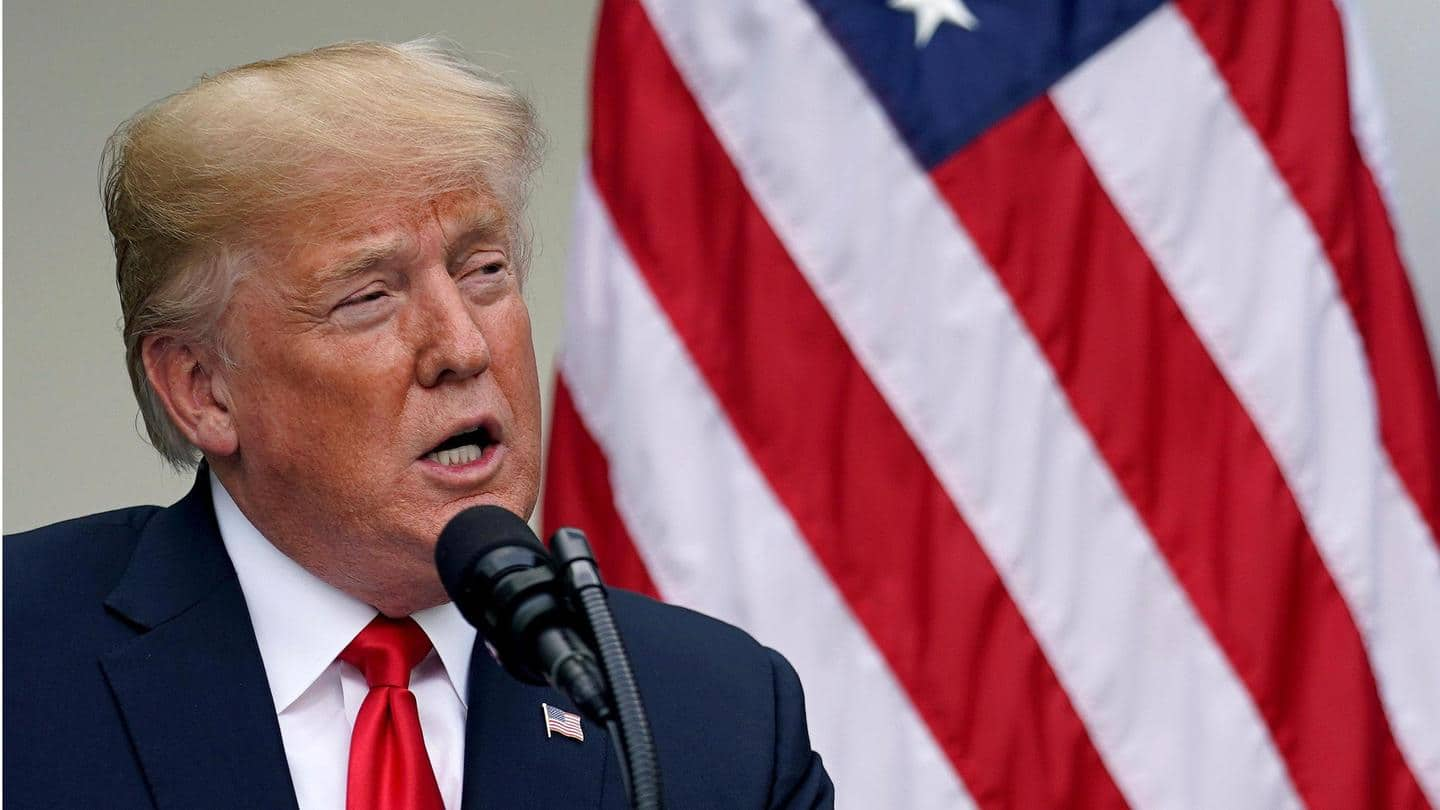
US President Trump likely to suspend H-1B, other visas
What's the story
United States President Donald Trump will announce new restrictions on employment-based immigration visas in the next two days.
Reportedly, Trump is expected to sign an executive order suspending H-1B, L-1, and other temporary work visas.
For months, the US has faced an unemployment crisis amid the coronavirus pandemic. Back in April, Trump had imposed a ban on immigration for green card seekers.
Trump’s statement
Trump said tight visa restrictions will be announced
On Saturday, Trump said in an interview with Fox News, "We are going to announce something tomorrow or the next day on the visas."
Trump refused to reveal more details but said that there will be "very little" exclusions.
Trump said, "You need them for big businesses where they have certain people that have been coming in for a long time."
Visas
Restrictions on H-1B, H-2B, L-1, and J-1
Fox News Chief White House correspondent John Roberts said the restrictions will be on H-1B, H-2B, L-1, and J-1 visas.
While the H-1B is for certain skilled workers such as in science, engineering, and IT, H-2B visas are given to seasonal workers (hotel staff, construction workers, etc.)
L-1 visas are for executives of large corporations and J-1 visas are for research scholars, professors, etc.
Reports
Order unlikely to immediately affect those currently in US: Report
Citing multiple sources familiar with the plan, the NPR reported that Trump is expected to sign an order to suspend H-1B, H-2B, L-1, and J-1 visas through the end of the year.
"The order is not expected to immediately affect anyone already in the United States," the report stated. It also said that President Trump could also renew the suspensions when they lapse.
Reports
Multiple reports corroborate news of proposed visa suspension
Bloomberg had reported on June 12 that the US was considering restricting people from entering the US on various visa categories, including H-1B, for as long as 180 days. The report cited two people familiar with the proposal.
A June 11 report in The Wall Street Journal had said that the proposed suspension could extend into the government's new fiscal year beginning October 1.